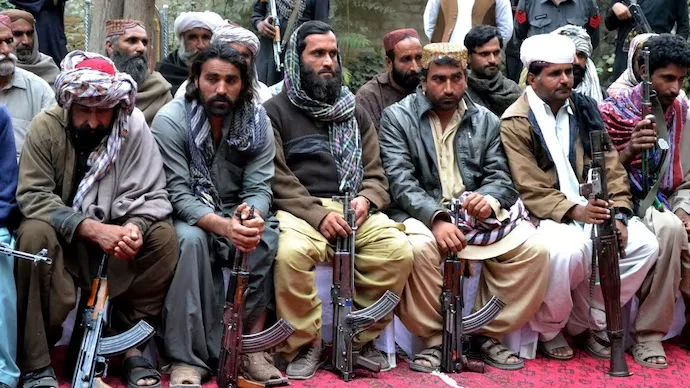InternationalNews
‘We announce war on Pakistan’: Who are the Baloch separatists, targeted in Iran
A tit-for-tat exchange of airstrikes between Iran and Pakistan has ignited tensions in the region, with a Baloch separatist group declaring "war" on Islamabad following targeted attacks on its alleged hideouts inside Iranian territory.

In a recent development, Baloch separatists have been targeted in Iran, with a group claiming responsibility for declaring war on Pakistan. Understanding the dynamics of the Baloch separatist movement and its regional implications is crucial for grasping the complexities of the situation.
- Baloch Separatist Movement: The Baloch separatist movement is rooted in the historical and cultural context of the Baloch people, who primarily inhabit the border region straddling Iran, Pakistan, and Afghanistan. The movement seeks greater autonomy or outright independence for the Baloch people.
- Groups Involved: Various Baloch separatist groups operate in different countries. In Iran, the Sunni militant group Jundallah has been associated with Baloch separatism, while in Pakistan, groups like the Balochistan Liberation Army (BLA) have been prominent. These groups often pursue their objectives through armed resistance.
- Ethnic and Economic Grievances: The Baloch separatist movement is fueled by a combination of ethnic and economic grievances. Balochistan, the region where many Baloch people reside, is often characterized by economic underdevelopment, perceived marginalization, and claims of resource exploitation by central governments.
- Cross-Border Dynamics: The Baloch separatist movement transcends national borders, with Baloch communities residing in Iran, Pakistan, and Afghanistan. The movement’s activities often spill across borders, leading to complexities in the geopolitical landscape of the region.
- Iranian Response: The Iranian government views Baloch separatist activities as a threat to its territorial integrity and has taken measures to counter such movements. The recent declaration of war on Pakistan by a Baloch separatist group operating in Iran adds a new dimension to the ongoing challenges faced by regional governments.
- Security Implications: It separatist activities pose security challenges for both Iran and Pakistan. The situation requires careful diplomatic and security responses to address the concerns of the affected communities while maintaining the territorial integrity of the nations involved.
- Regional Geopolitical Dynamics: The Baloch separatist movement intersects with broader regional geopolitical dynamics. Balochistan’s strategic location, rich in natural resources, makes it a focal point for regional powers. Instability in the region can have far-reaching implications for the geopolitical balance in the Middle East and South Asia.
- International Perspectives: The international community closely monitors the situation in Balochistan, given its potential to impact regional stability. It separatist activities often draw attention to issues of human rights, self-determination, and the broader challenges faced by ethnic and minority groups in the region.
Understanding the complexities of the Baloch separatist movement requires recognizing its roots in historical grievances, economic disparities, and the intricate geopolitical landscape of the region. As the situation unfolds, regional and international actors need to engage in diplomatic efforts aimed at addressing the underlying issues and fostering stability in the affected areas.




